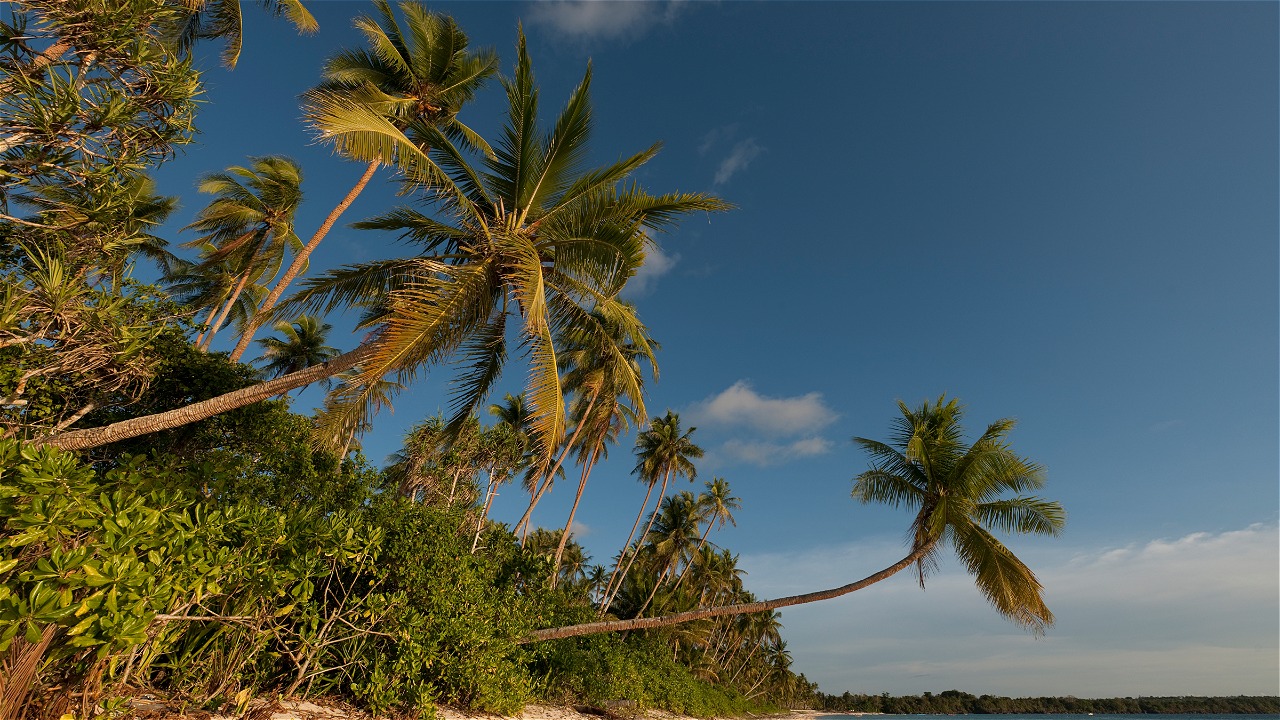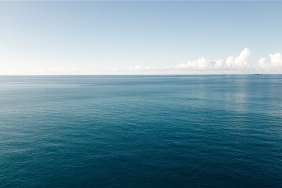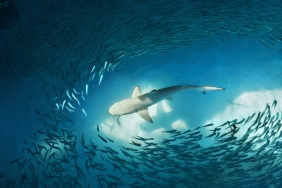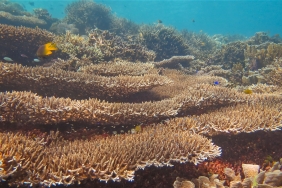ACTIVELY PROMOTING SIGNING BLUE FOR RESPONSIBLE MARINE TOURISM
By: Vinni Nurizky
A dozen tour operators and travel agencies gathered at the 2nd floor hall of Synthetis Residence Kemang on the afternoon of June 21, 2016. After filling in the attendance list, they began to fill all the seats provided. Each of them was holding a flyer that read Signing Blue complete with a panda logo on the side. A bright blue Signing Blue banner with an image of the sea and coast seen from above stood tall right next to the screen, attracting the attention of all eyes. They were attending the socialization and signing of the Signing Blue MOU, a platform initiated by WWF-Indonesia in order to realize the practice and management of responsible marine ecotourism in Indonesia.
Raising the slogan "Bringing Tourism to the Next Level", WWF-Indonesia gave birth to the idea of Signing Blue as a forum to facilitate the availability of a responsible and sustainable marine tourism market. All Signing Blue members, both tour agents and individuals will receive a special certificate for tourism, and verified in the application of environmentally sound business. Based on environmental and social principles, Signing Blue ensures that tourism activities are responsible for marine biodiversity (Biodiversity & Ecological Footprint) and responsible for local communities and cultures.
In addition to socialization, the event was also used as an MOU signing event for several companies and tourism service providers who wanted to join Signing Blue. PT Wallacea Jaleseva Lestari, PT Garap Sukses Abadi, PT Samudera Eco Anugerah, and PT Samudera Ecotourism Indonesia are 4 companies that signed the MOU and joined Signing Blue. Devy Suradji as Director of Marketing and Communication of WWF-Indonesia signed the MOU of each company, side by side with the owner of the company. They are committed to becoming responsible ecotourism business agents for the sustainability of the marine tourism industry.
Signing Blue has been officially launched since November 2015. And until now, the Responsible Marine Tourism WWF-Indonesia team is aggressively socializing throughout Indonesia so that information on this initiative is evenly distributed and can encourage the creation of national policies that support responsible marine tourism service providers. The plan is to continue this socialization series to Yogyakarta and Surabaya. The event was closed shortly before the maghrib call to prayer, and ended with breaking the fast with all invited guests.
Indonesia as the center of marine tourism destination for foreigners
Maritime tourism can be a threat if all actors in the industry are not willing to work together in environmental conservation. Starting from travelers, trip guides, transportation and accommodation service providers, and all aspects that have a role in the marine tourism business. As is well known, Indonesia has considerable marine tourism potential, one of which is the existence of the Coral Triangle (Coral Triangle) as the center of the world's marine biodiversity, which covers the sea and islands from Bali to Nusa Tenggara to Southeast Maluku, and Kupang then to the north covering the southern and eastern sides of Sulawesi Island.
The Coral Triangle is an important habitat for fisheries resources and has both opportunities for utilization and high vulnerability. It is home to half of all coral species and the habitat for many marine species as well as being a transit site for the migration of several marine mammals. This is what attracts marine tourism in Indonesia. If not handled with wise and responsible behavior, there will come a time when the entire marine sustainability of the archipelago dies and is depleted due to harmful tourism activities.





